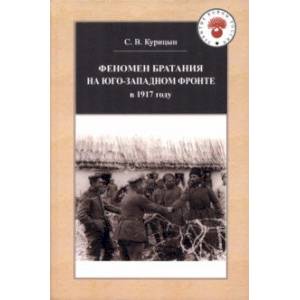The phenomenon of fraternity on the Southwestern Front in 1917
Please sign in so that we can notify you about a reply
The book examines the phenomenon of fraternity at the most dynamic section of the East European TWD of the First World War - the Southwestern Front. It was here that Russia was achieved the most significant successes for the period of its participation in the global conflict of 1914-1918, which, however, was not an obstacle to the spread of anti-war sentiments in the armies of the front, most clearly manifested after the fall of the monarchy. The most important feature of this section of the Russian front was the multinational and polyconfessional composition of the forces concentrated here, opposing the Russian army. These factors gave the fraternal, which in 1917 was widespread in the Russian army as a whole and in the troops of the South-Western Front, in particular, a certain originality. In this paper, both the features inherent in the fraternal, as well as the features of this type of anti-war performances that took place in various armies of the front, are considered both common to all armies of the South-Western Front. For historians, university teachers, including military, students of historical and other humanitarian specialties and a wide range of readers
Author:
Author:Курицын Сергей Владимирович
Cover:
Cover:Hard
Category:
- Category:Biographies & Memoirs
- Category:History & Geography
ISBN:
ISBN:978-5-91791-456-5
No reviews found
